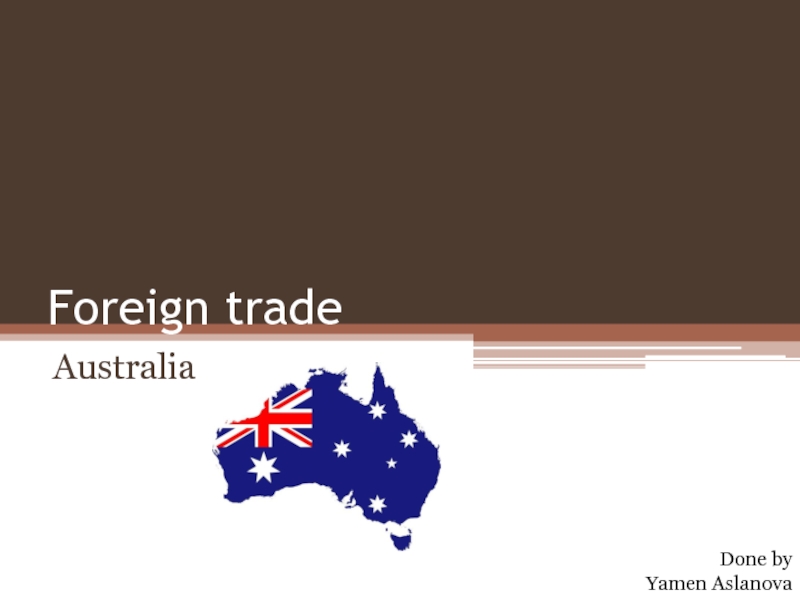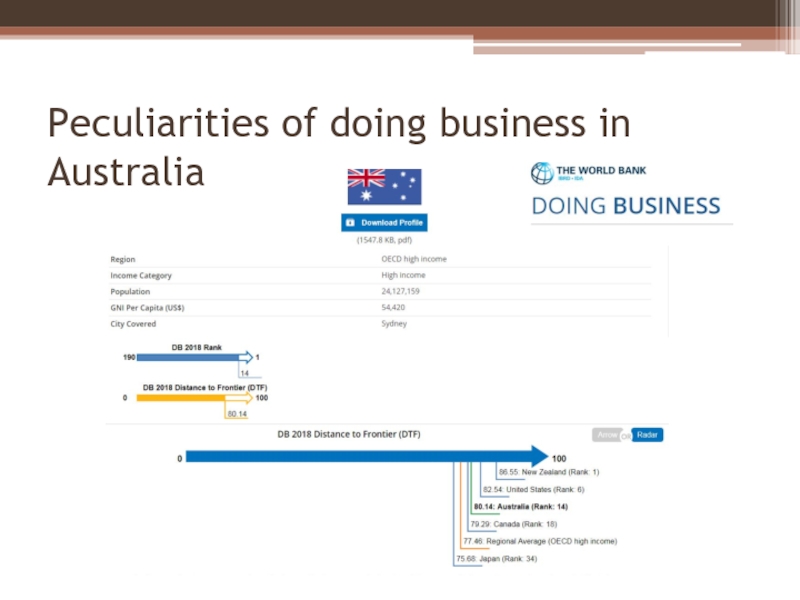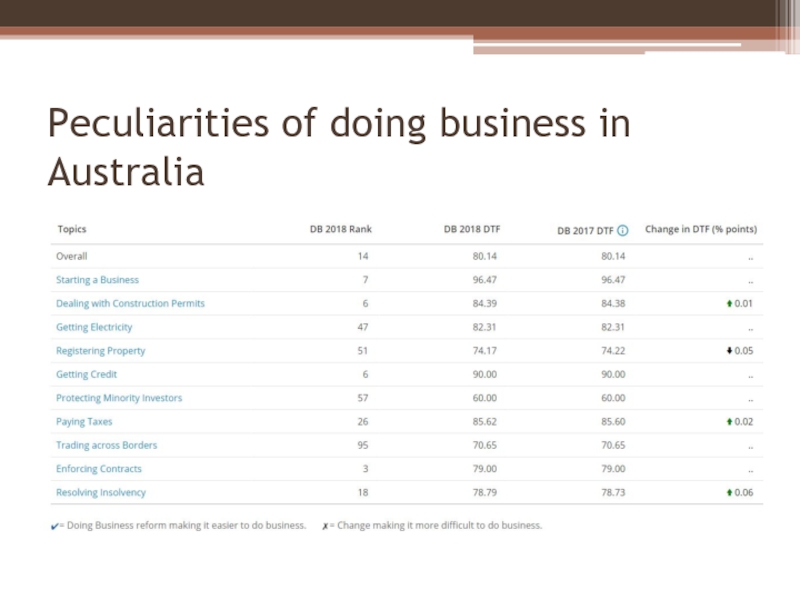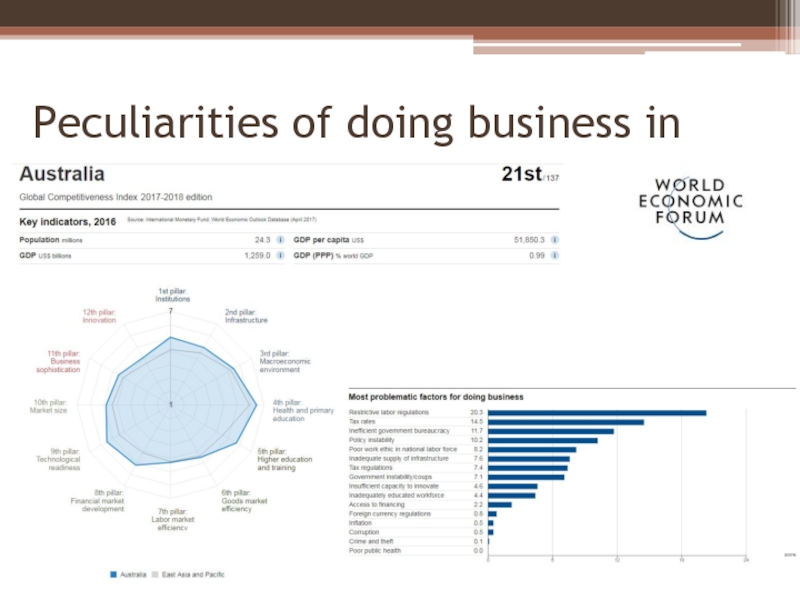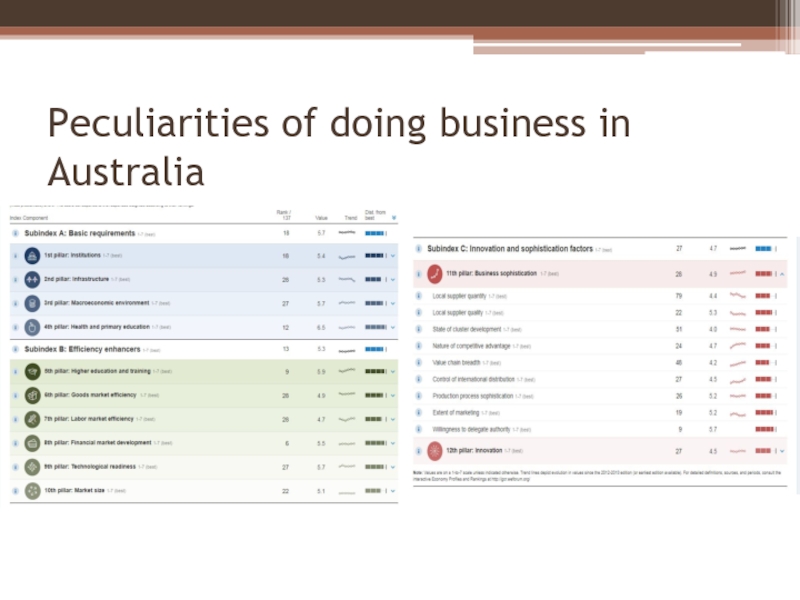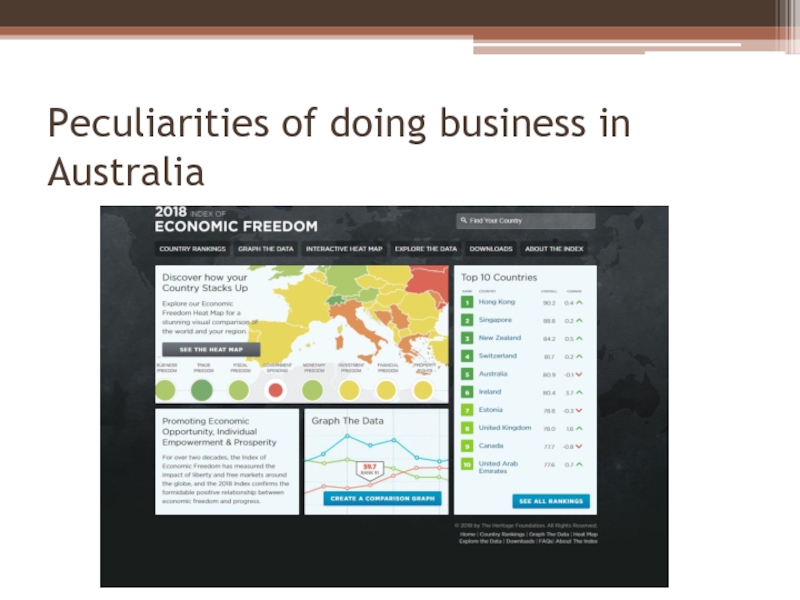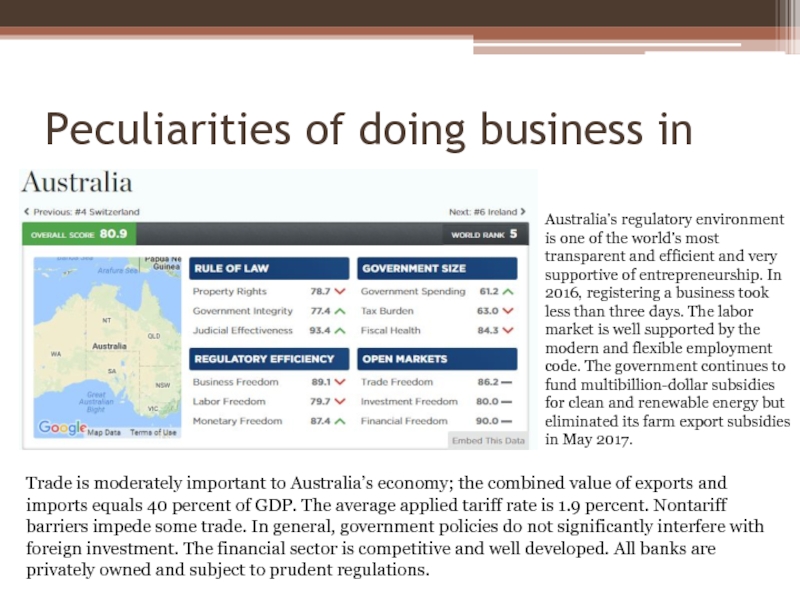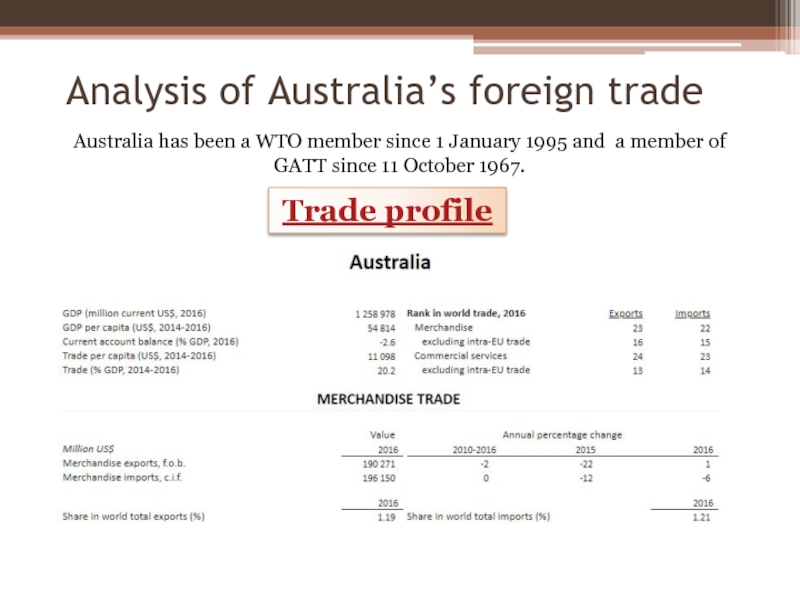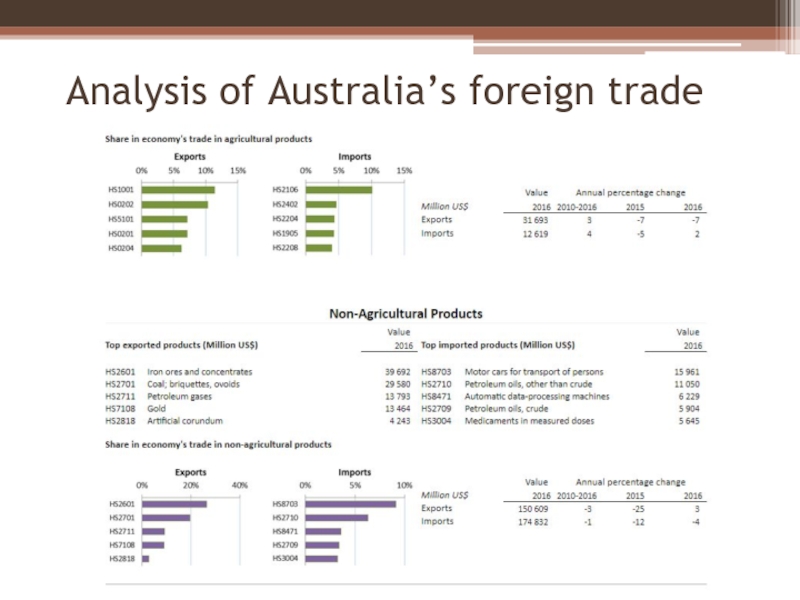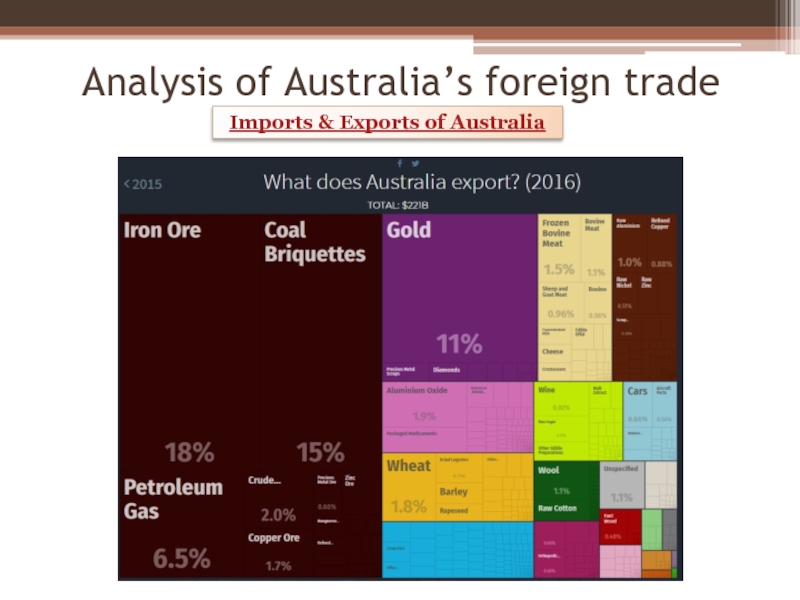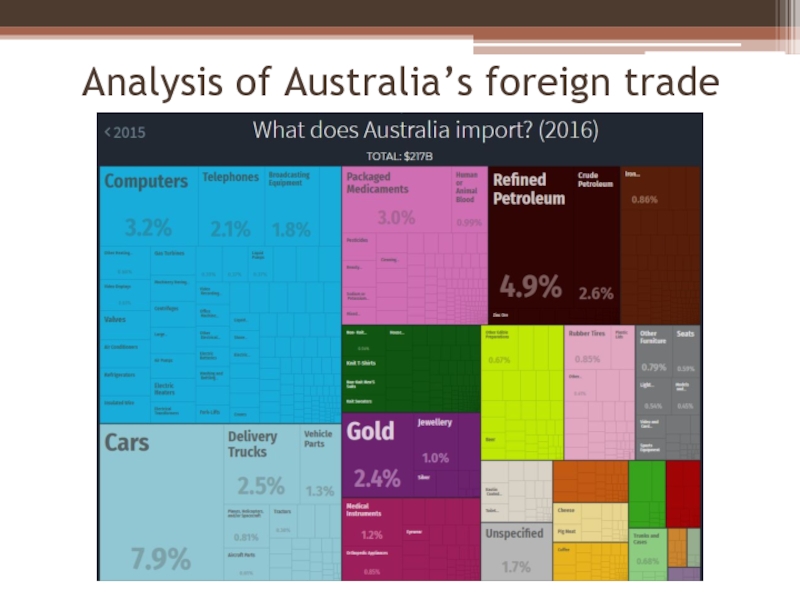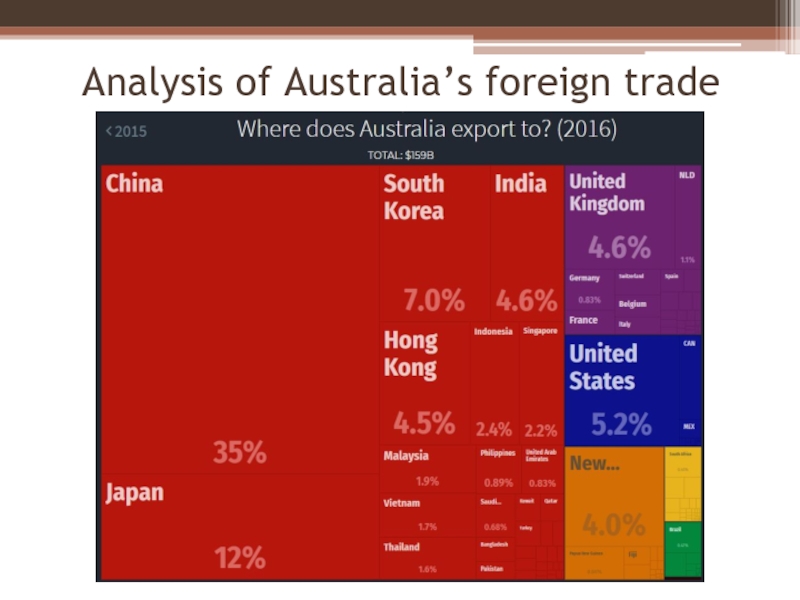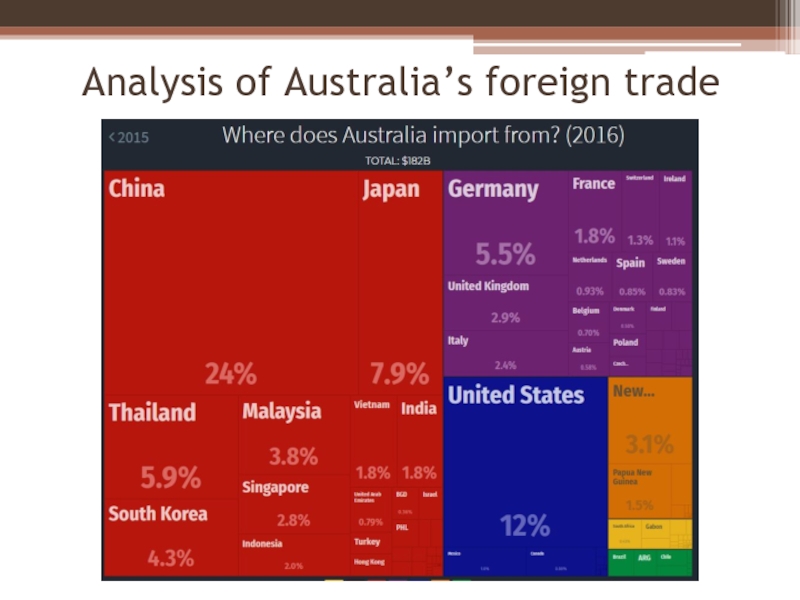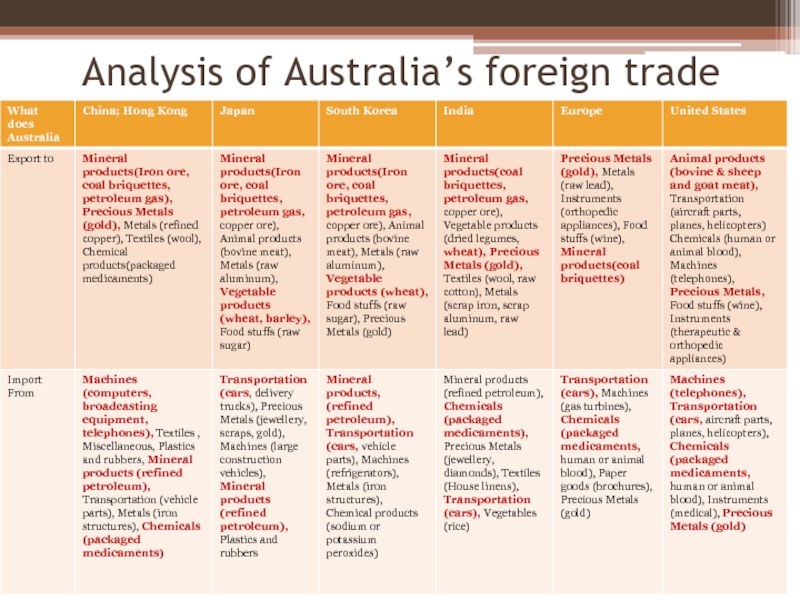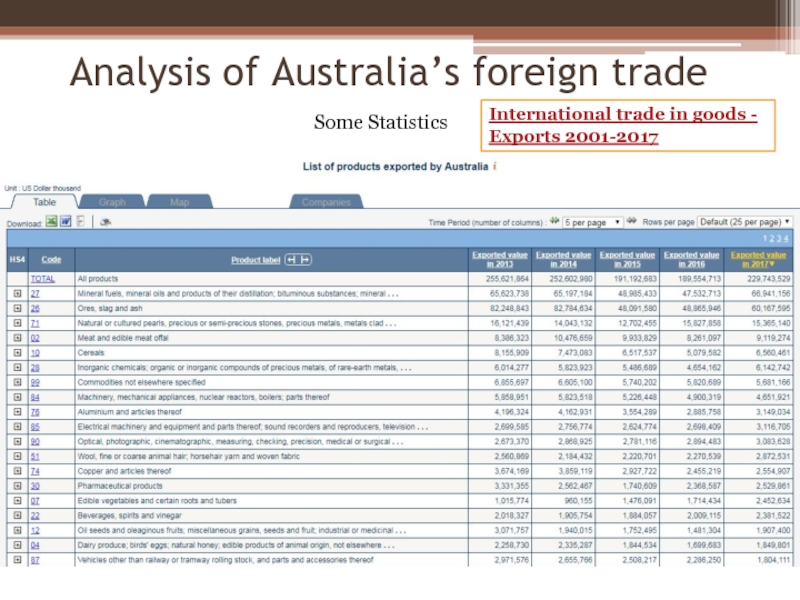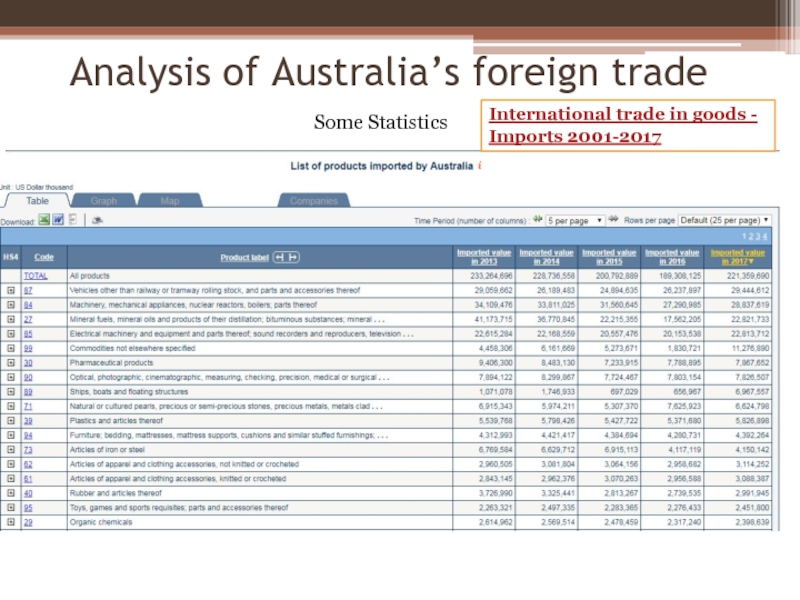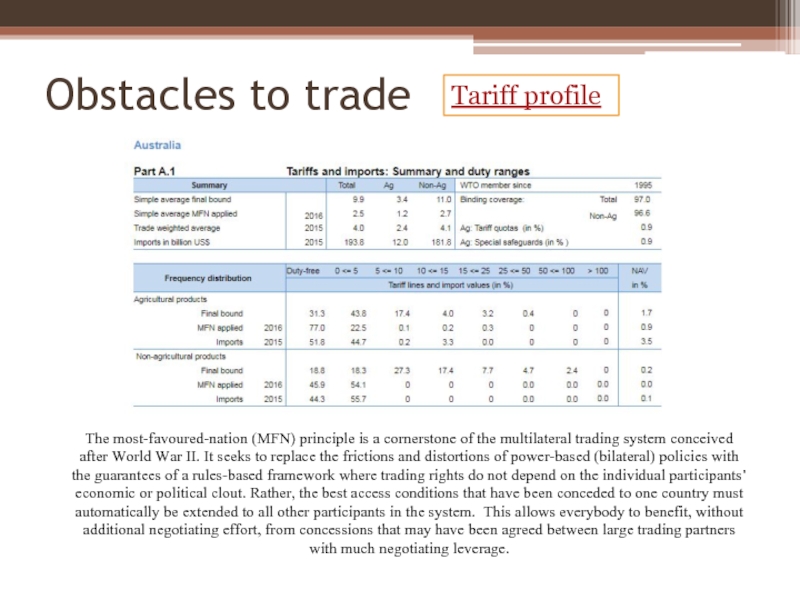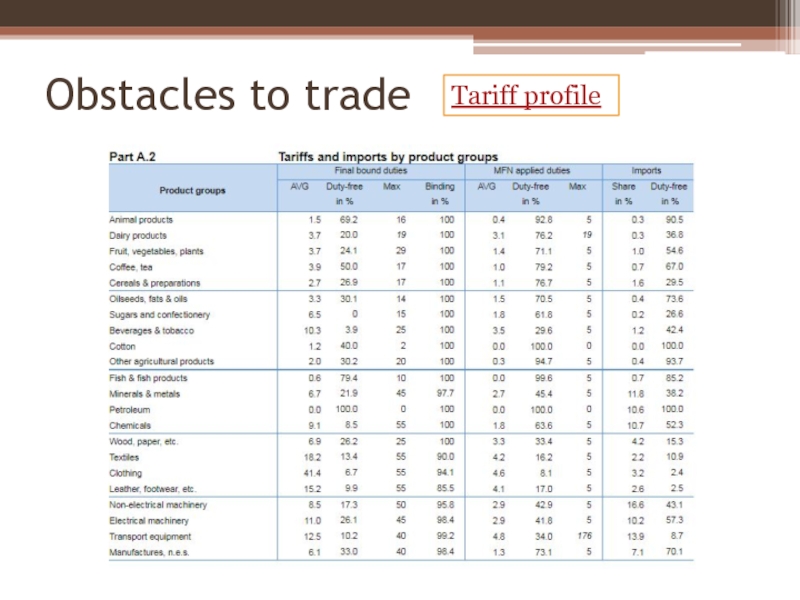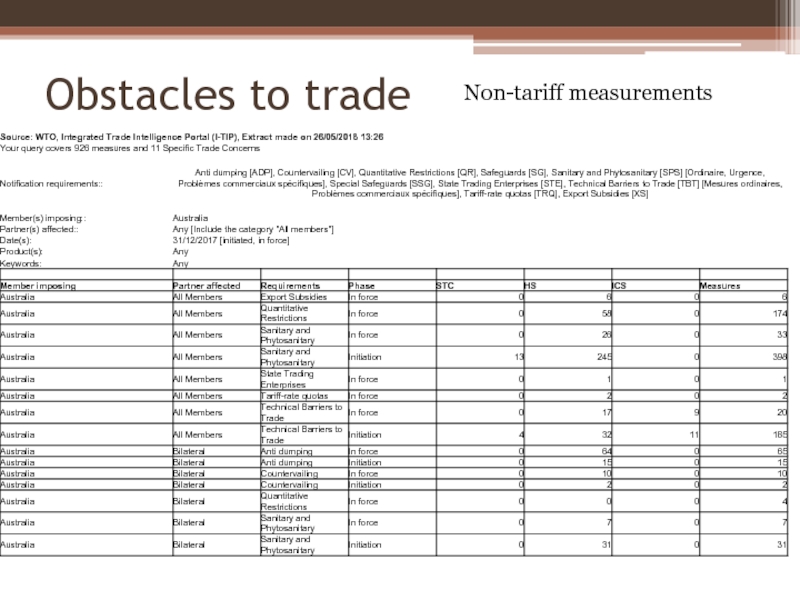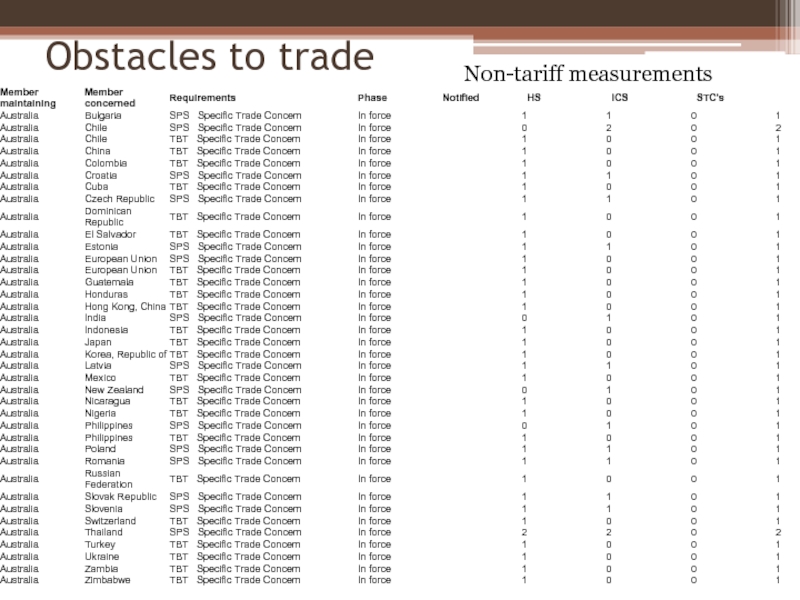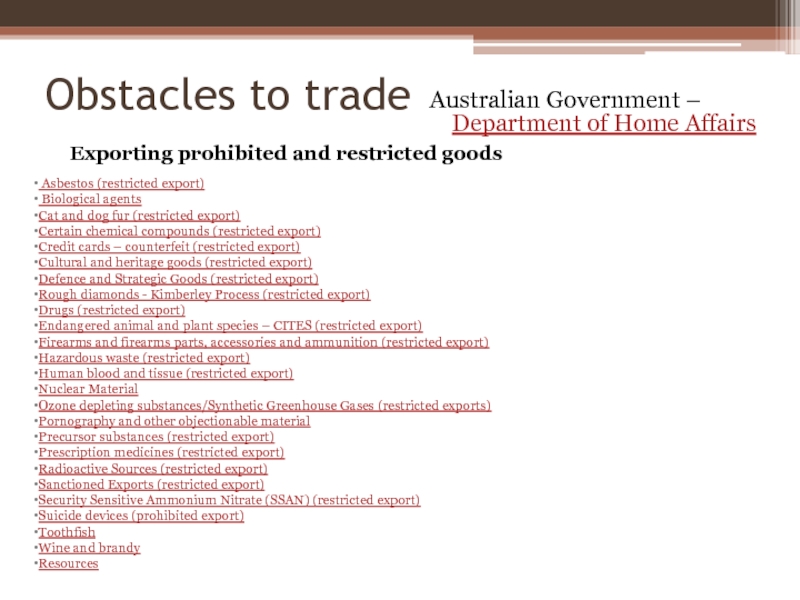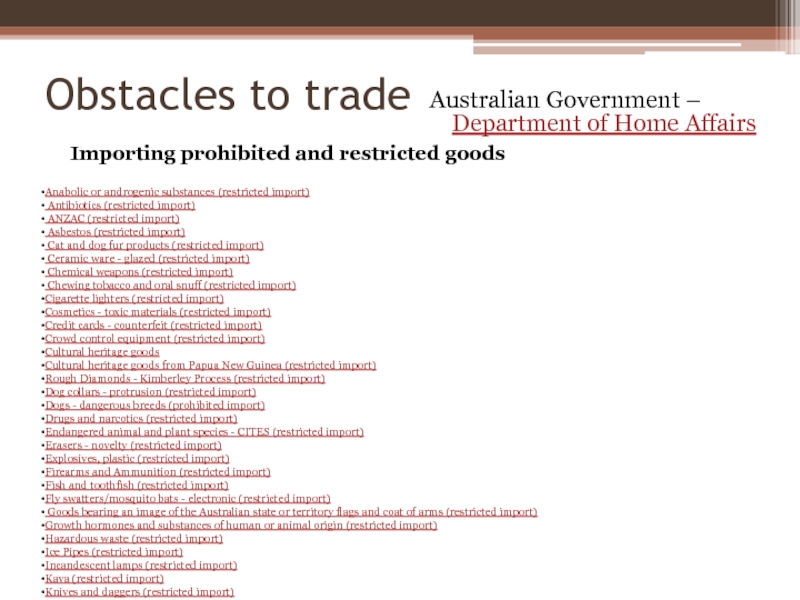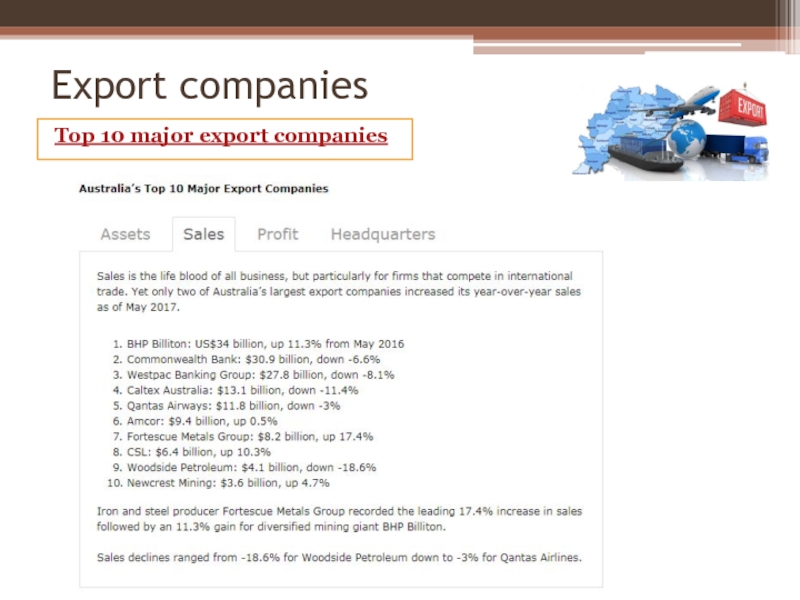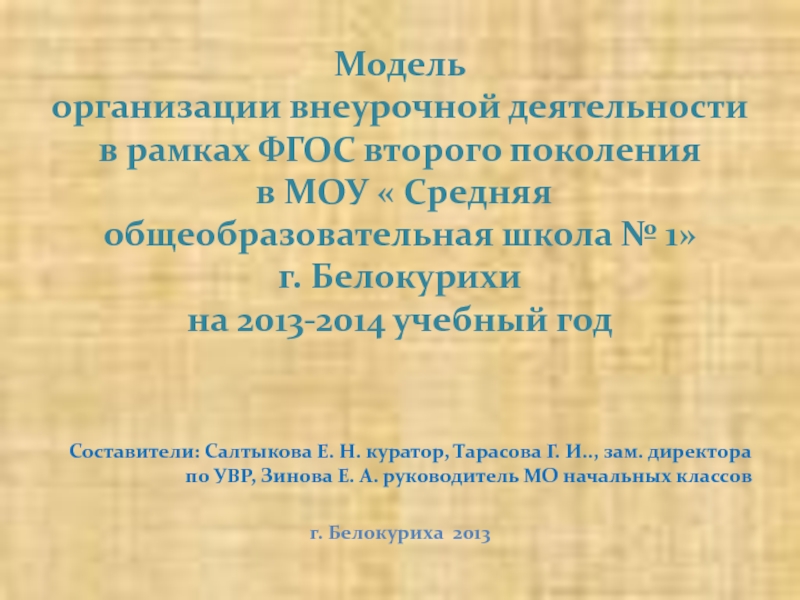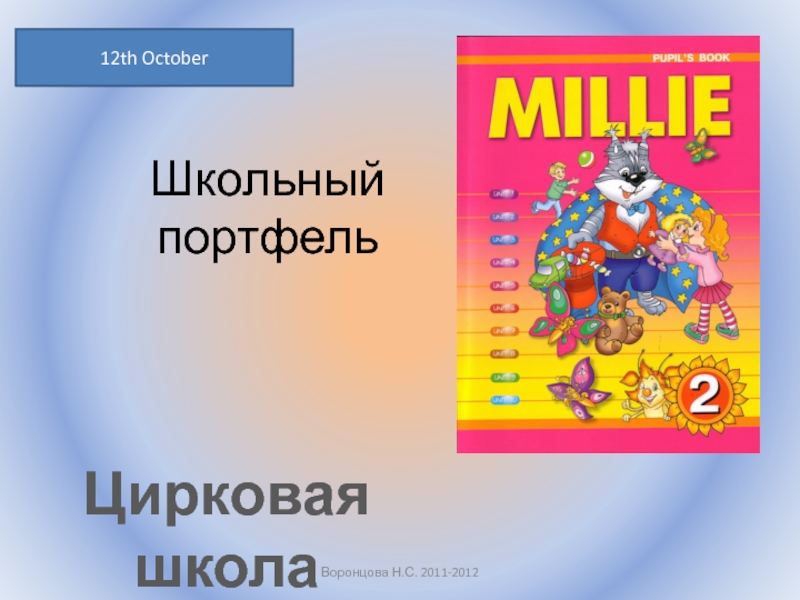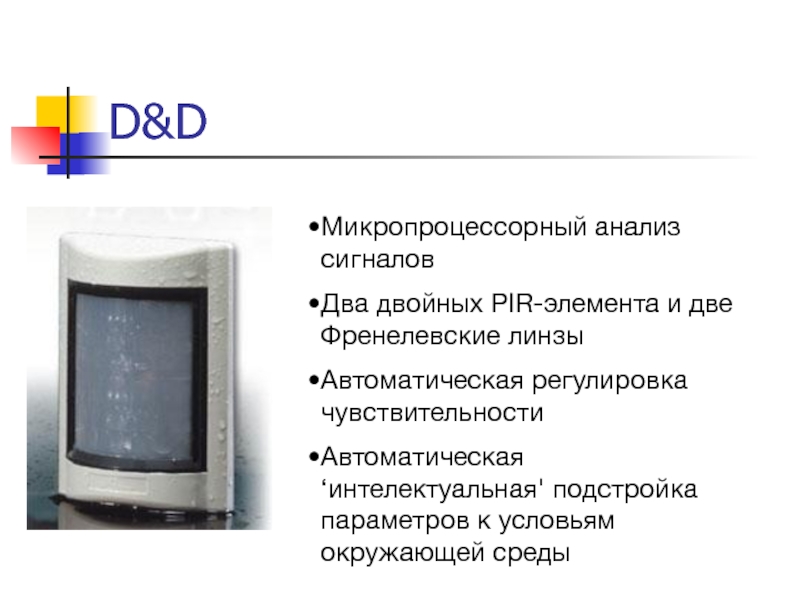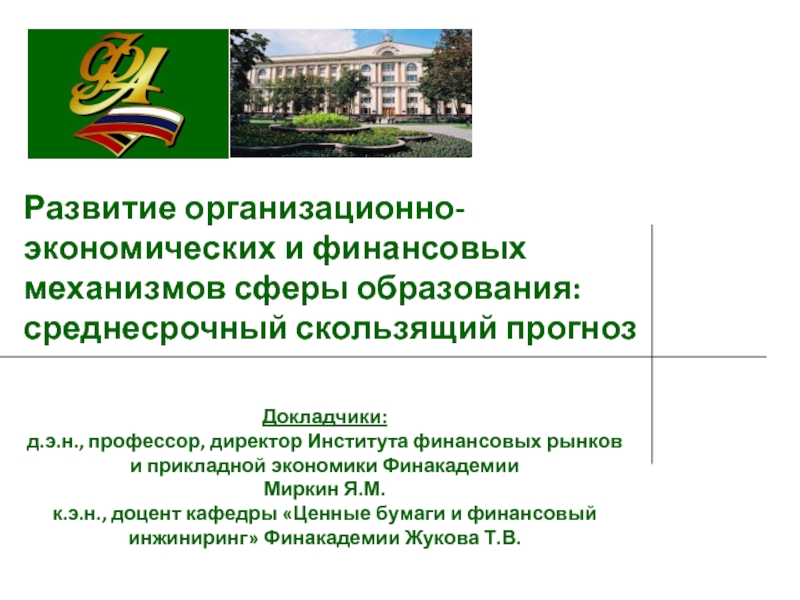- Главная
- Разное
- Дизайн
- Бизнес и предпринимательство
- Аналитика
- Образование
- Развлечения
- Красота и здоровье
- Финансы
- Государство
- Путешествия
- Спорт
- Недвижимость
- Армия
- Графика
- Культурология
- Еда и кулинария
- Лингвистика
- Английский язык
- Астрономия
- Алгебра
- Биология
- География
- Детские презентации
- Информатика
- История
- Литература
- Маркетинг
- Математика
- Медицина
- Менеджмент
- Музыка
- МХК
- Немецкий язык
- ОБЖ
- Обществознание
- Окружающий мир
- Педагогика
- Русский язык
- Технология
- Физика
- Философия
- Химия
- Шаблоны, картинки для презентаций
- Экология
- Экономика
- Юриспруденция
Foreign trade презентация
Содержание
- 1. Foreign trade
- 2. Peculiarities of doing business in Australia
- 3. Peculiarities of doing business in Australia
- 4. Peculiarities of doing business in
- 5. Peculiarities of doing business in Australia
- 6. Peculiarities of doing business in Australia
- 7. Peculiarities of doing business in Australia’s regulatory
- 8. Analysis of Australia’s foreign trade Australia has
- 9. Analysis of Australia’s foreign trade
- 10. Analysis of Australia’s foreign trade
- 11. Analysis of Australia’s foreign trade
- 12. Analysis of Australia’s foreign trade Imports & Exports of Australia
- 13. Analysis of Australia’s foreign trade
- 14. Analysis of Australia’s foreign trade
- 15. Analysis of Australia’s foreign trade
- 16. Analysis of Australia’s foreign trade
- 17. Analysis of Australia’s foreign trade Some Statistics International trade in goods - Exports 2001-2017
- 18. Analysis of Australia’s foreign trade Some Statistics International trade in goods - Imports 2001-2017
- 19. Analysis of Australia’s foreign trade Australian Department of Foreign Affairs & Trade
- 20. Obstacles to trade Tariff profile The most-favoured-nation (MFN)
- 21. Obstacles to trade Tariff profile
- 22. Obstacles to trade Non-tariff measurements
- 23. Obstacles to trade Non-tariff measurements
- 24. Obstacles to trade Australian Government – Department
- 25. Obstacles to trade Australian Government – Department
- 26. Export companies Top 10 major export companies
- 27. Thank you!
Слайд 7Peculiarities of doing business in
Australia’s regulatory environment is one of the
Trade is moderately important to Australia’s economy; the combined value of exports and imports equals 40 percent of GDP. The average applied tariff rate is 1.9 percent. Nontariff barriers impede some trade. In general, government policies do not significantly interfere with foreign investment. The financial sector is competitive and well developed. All banks are privately owned and subject to prudent regulations.
Слайд 8 Analysis of Australia’s foreign trade
Australia has been a WTO member since
Trade profile
Слайд 17 Analysis of Australia’s foreign trade
Some Statistics
International trade in goods - Exports
Слайд 18 Analysis of Australia’s foreign trade
Some Statistics
International trade in goods - Imports
Слайд 20Obstacles to trade
Tariff profile
The most-favoured-nation (MFN) principle is a cornerstone of the
Слайд 24Obstacles to trade
Australian Government – Department of Home Affairs
Exporting prohibited and
Asbestos (restricted export)
Biological agents
Cat and dog fur (restricted export)
Certain chemical compounds (restricted export)
Credit cards – counterfeit (restricted export)
Cultural and heritage goods (restricted export)
Defence and Strategic Goods (restricted export)
Rough diamonds - Kimberley Process (restricted export)
Drugs (restricted export)
Endangered animal and plant species – CITES (restricted export)
Firearms and firearms parts, accessories and ammunition (restricted export)
Hazardous waste (restricted export)
Human blood and tissue (restricted export)
Nuclear Material
Ozone depleting substances/Synthetic Greenhouse Gases (restricted exports)
Pornography and other objectionable material
Precursor substances (restricted export)
Prescription medicines (restricted export)
Radioactive Sources (restricted export)
Sanctioned Exports (restricted export)
Security Sensitive Ammonium Nitrate (SSAN) (restricted export)
Suicide devices (prohibited export)
Toothfish
Wine and brandy
Resources
Слайд 25Obstacles to trade
Australian Government – Department of Home Affairs
Importing prohibited and
Anabolic or androgenic substances (restricted import)
Antibiotics (restricted import)
ANZAC (restricted import)
Asbestos (restricted import)
Cat and dog fur products (restricted import)
Ceramic ware - glazed (restricted import)
Chemical weapons (restricted import)
Chewing tobacco and oral snuff (restricted import)
Cigarette lighters (restricted import)
Cosmetics - toxic materials (restricted import)
Credit cards - counterfeit (restricted import)
Crowd control equipment (restricted import)
Cultural heritage goods
Cultural heritage goods from Papua New Guinea (restricted import)
Rough Diamonds - Kimberley Process (restricted import)
Dog collars - protrusion (restricted import)
Dogs - dangerous breeds (prohibited import)
Drugs and narcotics (restricted import)
Endangered animal and plant species - CITES (restricted import)
Erasers - novelty (restricted import)
Explosives, plastic (restricted import)
Firearms and Ammunition (restricted import)
Fish and toothfish (restricted import)
Fly swatters/mosquito bats - electronic (restricted import)
Goods bearing an image of the Australian state or territory flags and coat of arms (restricted import)
Growth hormones and substances of human or animal origin (restricted import)
Hazardous waste (restricted import)
Ice Pipes (restricted import)
Incandescent lamps (restricted import)
Kava (restricted import)
Knives and daggers (restricted import)
Laser pointers (restricted import)
Money boxes, novelty - toxic materials (restricted import)
Ozone depleting substances/Synthetic Greenhouse Gases (restricted import)
Pencils or paintbrushes - toxic materials (restricted import)
Pesticides and other hazardous chemicals (restricted import)
Polychlorinated Biphenyls, Terphenyls and Polyphenyls (restricted import)
Pornography and other objectionable material (restricted import)
New psychoactive substances (prohibited import)
Radioactive substances (restricted import)
Sanctioned countries/entities
Security Sensitive Ammonium Nitrate (SSAN) (restricted import)
Signal jammers / signal jamming devices (restricted import)
Suicide devices (prohibited import)
Tablet Presses (restricted import)
Therapeutic drugs and substances (restricted import)
Tobacco - unmanufactured leaf (restricted import)
Toys - toxic material (restricted import)
Competition and Consumer Act goods (restricted import)
Viable materials/stem cells derived from human embryo clones (regulated import)
Warfare Goods and other Weapons (restricted import)
Woolpacks (restricted import)
